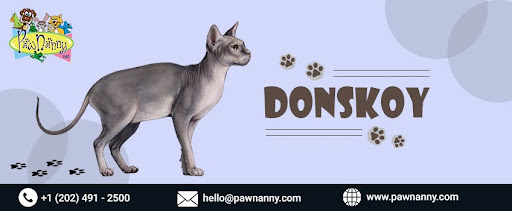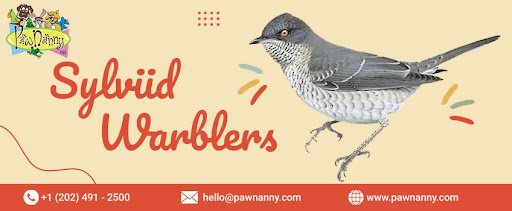
Donskoy
Size: 12 to 16 inches
Weight: 6 to 12 pounds
Hypoallergenic: Yes (less)
Lifespan: 12 to 15 years
Behavior
Russians created the Donskoy, a gentle, playful, smart cat breed. The lack of fur might be interesting because Donskoy cats are amiable and lovable. They are quite calm, affectionate, and good with kids or other animals if they take the time to train them when growing up. Donskoys are average activity cats that love chasing toys, jumping, and running around the house When they have enough space and things to do. They will willingly meow at toy balls, paw at strings, scale cat gyms and confines, or even engage in complex ‘catch–hide and seek’ with their masters. Donskoys like to be off the ground and are great at leaping to get them on shelves and fridges, so book Pet House Sitting Services in your absence.
These cats have a particularly strong affection for their people. They require a tendency and companionship and walk from one area to another following their beloved one. Donskoys enjoy being stroked and cuddled and most certainly will delight you with loud chugging purrs and paws raking your lap. They love playing but also value calm cuddling in your arms or napping under the blanket at night.
Even though Donskoys especially belong to the extroverted temperament group they are not overly talkative and are known to use a soft voice. If their skin is cared for well, they grow up to be very loving entertainment, providing fellow companion cats.
History
Donskoy is still a fairly young and rare breed of cat that appeared in Russia. In Rostov on Don, in about 1987, a black kitten called Varvara was born hairless from her littermates, who were all fur. Varvara was mated with other cats, and more hairless offspring were sired; the basis for the new Donskoy breed was laid here.
Hairless breeding was initiated in the early 1990s to stabilize the hairless gene and to produce healthy cats with good temperaments. The Russian cat breeders went a long way in setting up the breed standard for the Donskoy and seeking to have it registered by the cat breeder associations. Mainly, the Donskoy breed was accepted by the World Cat Federation, being registered as a new breed in 1997. Other registries soon gradually followed.
Today, there are many breeders of Donskoy worldwide, but the highest number of cats live in Russia. Even today, they are far from a densely populated world and are called a rarity. Unfortunately, hairlessness has its drawbacks, so breeders concentrate on health and character while selecting Donskoys. Even though they are extraterrestrial creatures with no appealing facial features, they are courteous, affectionate, and loyal, bringing them much love and fans.
Looks and Health
The Donskoy is another of the individual cat breeds developed in Russia and possesses an entirely special appearance. The most famous characteristic of these cats is that they are scantily furred or practically. Many Donskoy cats will be sandy in color with soft, peach-like fuzz on their body and paws, heads, and tails, while ears, hair, and bridges of the nose will also be present. Others might have short, coarse underfur in certain areas or possibly a weak wave to the hair. Nonetheless, Donskoys are devoid of fur while having wrinkled skin that may be compared to suede-like. Hairless cats exist in calico, tabby, pointed, bi-colored, and a solid spectrum of coloring. In size and form, the Donskoy is an average to large size cat with chubby bones, a rounded wedge-shaped head, large ears, and almond-shaped eyes. They are equally cute and make great, friendly, and loving cats. This gives the Donskoy a bald look, distinguishing this breed from the others.
The Donskoy is generally a very healthy breed of cat and robust. However, any cat breed is likely to have peculiar health problems. One of the important health concerns about Donskoys is that they do not have much body hair; they can easily get a heat stroke or freeze. They should be warmed within the cold weather seasons and cooled within the hot weather seasons. Other than temperature control, Donskoys can be prone to hypertrophic cardiomyopathy (HCM), which is a type of heart disease, and retinal degeneration, which may lead to blindness in later years. A few of the Donskoy lines may also be susceptible to dental malocclusion. Any responsible Donskoy breeder will have breeding cats go through an echocardiogram and only produce cats that have good cardiovascular health. Taking necessary measures beginning from pre-breeding through genetic check-ups and consultations with veterinarians, most Donskoys have wonderful, mostly healthy lives despite their absence of coats. Most species in this category have a life expectancy of 10-15 years. It will also be important to keep tabs on any new sicknesses that may affect this relatively new breed.
Food and Nutrition
The Donskoy is yet another cat breed that is so unique because most of its body is free of coat hair. By nature, the Donskoys are obligate carnivores and require a diet high in protein and fats but low in carbohydrates. Meat products, such as chicken or turkey, beef or fish, should constitute at least 30% of the diet in terms of protein. During the winter, fur acts as a kind of barrier, so the cells containing fats in the skin of the Donskoy are important in conserving heat in the winter, mainly from the unmasked skins of the body. Depending on the findings, Essential nutrients include vitamin A, which may help enhance skin health.
This scaleless breed, like the Donskoy, has been found to have a faster metabolic rate because of loss of body heat and, therefore, has to take in more calories per pound of body weight than any other cat. Oral or dermal supplements containing essential fatty acids can give extra skin nutrition for the hairless Donskoy. A proper eating plan is a premium, complete, balanced cat food with additional fresh water to provide Donskoys with all the necessary nutrients for an active and healthy life. If you are away, hire Overnight Pet Sitting to care for them.
Conclusion
The Donskoy is an exceptional cat breed that can hardly be found in other parts of the world. At first sight, the absence of hair may appear to repel potential parents - however, the Donskoy is exceptionally friendly. Donskoys are friendly, spirited, and alert and can even be heard making several sounds. Even in adulthood, they have childish naughtiness. They must be protected from the natural conditions and climate. Due to their unique appearance and friendly disposition, it is not surprising that these cats have become rather popular.
Thus, Donskoys can guarantee an exceptional combination: an attractive appearance with no hair on the body and a friendly personality oriented to people. The right parent will have a good and happy long-term companion like a Donskoy and a great pet for pet mid-day walks. Given the growing trends in adopting them, there is no doubt that more and more of these smooth-shaven lovely cats will be around the globe shortly. For more information or to avail of our overnight pet house sitting service Fairfax, visit PawNanny.com.










